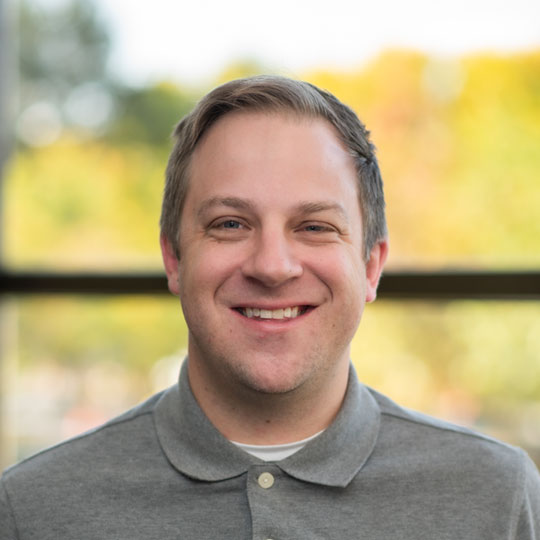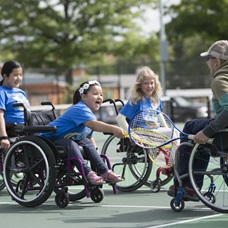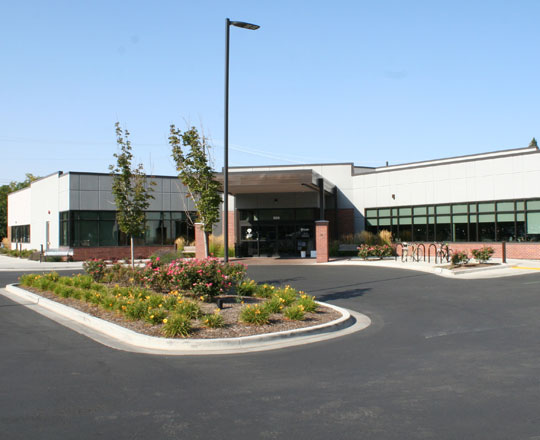Better Together
St. Luke’s long COVID patients find their voice with help from Opera Idaho

London. Los Angeles. Boise.
At first, you might fail to see much in common with those three cities, but in each, a unique partnership has been formed to help patients experiencing long-haul COVID symptoms.
The English National Opera, LA Opera and now Opera Idaho have used their knowledge and skills to teach breathing techniques to those patients.
Earlier this year, St. Luke’s Clinic – COVID Recovery sought out interested patients after connecting with Opera Idaho to gauge their interest.
“It was one of those ideas you hadn’t really considered, but the minute you heard about it, it was like ‘duh, this is a perfect match,’” said Mark Junkert, Opera Idaho’s general director. “I made calls to England and LA, and they raved about its success, so we were really excited to be a part of it.”
The six-week program, free to patients thanks to donor funds through the St. Luke's COVID-19 Response Fund, concludes this week. But there has been so much interest, it is expected to continue in the future.

Dr. Jodie Donovan, St. Luke’s Clinic – COVID Recovery medical director, heard about the Los Angeles program last year and thought, “This is awesome, I wonder if we could do that in Boise, Idaho?” She said about 75% of patients seen in the clinic have some form of shortness of breath.
Donovan and physician assistant Sorcha Cusack then got to work on putting together a similar program as the efforts in London and Los Angeles, which paired up with Imperial College Healthcare and UCLA Health, respectively. They then reached out to Junkert to see if it was possible.
“They really wanted to make it something special for the community and to help patients with this terrible illness … they looked at the techniques they taught in (England) and wanted to apply them here,” Dr. Donovan said.
And Opera Idaho had the perfect person to help lead the charge, someone with a personal investment in helping St. Luke’s patients.
In October 2020, mezzo soprano Sable Strout tested positive for COVID-19 while she was home in Maine. She soon developed intense tachycardia (rapid heart rate) and was in and out of hospitals for three months.
“I thought, ‘I’m probably never going to sing again,’” she said. “I had sort of accepted my fate. When my heart rate got up, my breathing was labored. For a singer, that is really scary.”
With treatment, Strout’s health has improved. But she had not been singing or doing her voice exercises as usual during those months. With the help of a voice coach, Strout eventually got her voice back. She said she had to “retrain her entire body.”
Strout joined Opera Idaho for the 2021-22 season through its Emerging Artist program. When the opportunity came to help patients with long-term COVID-19 effects, it felt like a sense of duty.

“The reason I wanted to help out in the capacity that I could, I know they all have thought the same thing as me, ‘I don’t think I’m ever going to be the same,’” she said. “We are all different, but I’d like to believe with small adjustments your life can get better. We work on not just the exercises, but things I found helpful – coping mechanisms, emotional check-ins, journaling, things like that.”
For the weekly sessions, 12 St. Luke’s patients have joined Strout online, along with Boise State associate professor Laura Rushing-Raynes, the head of voice in the Department of Music.
Strout and Rushing-Raynes, who has appeared on the opera stage herself, work on stretches that help expand muscles and also voice work, like “mermaid singing,” where patients attempt to sing a song through a straw in a glass of water.
“I’m not exaggerating, but knowing how dark of a place I was in, it’s the most fulfilling thing I’ve maybe ever done as a singer,” Strout said. “You think of opera as the lady with the horns, but it takes your full body to sing. It’s not much different to breathe properly again.”
One of the patients in the program, Jen Pitino, knows all too well that it can take a lot of work to get back to feeling even close to normal.
Pitino was on a ventilator at St. Luke’s for nine days last August, spending 26 days in the hospital, including a stay in acute rehab. She still has shortness of breath and one vocal chord that doesn’t open all the way, and another that doesn’t fully close. It sounds like she has a constant sore throat, but she doesn’t.
“I was really excited when I heard about the program, because I figured if anyone knows how to work on their voice, protect and rehab it, it was them,” Pitino said.
Another benefit of the program was being together in a group – albeit virtually – as it also allows the patients to talk with one another about their experiences and help each other out. They have time as a group and one-on-one with the instructors.

The mermaid singing, in particular, worked well for Pitino, whose voice sounded different just in a half hour. She said she will continue to do the exercises after the program is completed. She also has noticed some improvements with deep breathing exercises. She can hold a note or tone for about 8 or 9 seconds. That’s better than the 6-7 about a month ago, but still not around the typical range of 15-20.
“I think with continued practice, it’ll keep getting better,” Pitino said. “It gives you a lot of hope.”
Seeing progress like Pitino’s has been an incredible experience for Strout.
“It was so apparent, immediately, that I made the right decision to do this – everyone embraced the process and wanted to get better,” Strout said. “COVID has disrupted their lives, but they’re working hard to get better. It rocked my perception of what it is to be a teacher. It’s pretty amazing.”
Said Junkert: “I’m almost 70 and I’ve never been a part of anything like it. Good for whoever in London who came up with the idea.”
Some big city innovation implemented in a place like Boise and unique partnerships built to help patients affected by a pandemic, it’s another way St. Luke’s looks out for the communities we serve.
“Other than a time investment, it didn’t cost me anything – and with something still new like COVID, why not try?” Pitino said. “I think being open to something new like this, it shows there are a lot of different roads to recovery.”About The Author

Dave Southorn works in the Communications and Marketing department at St. Luke's.





